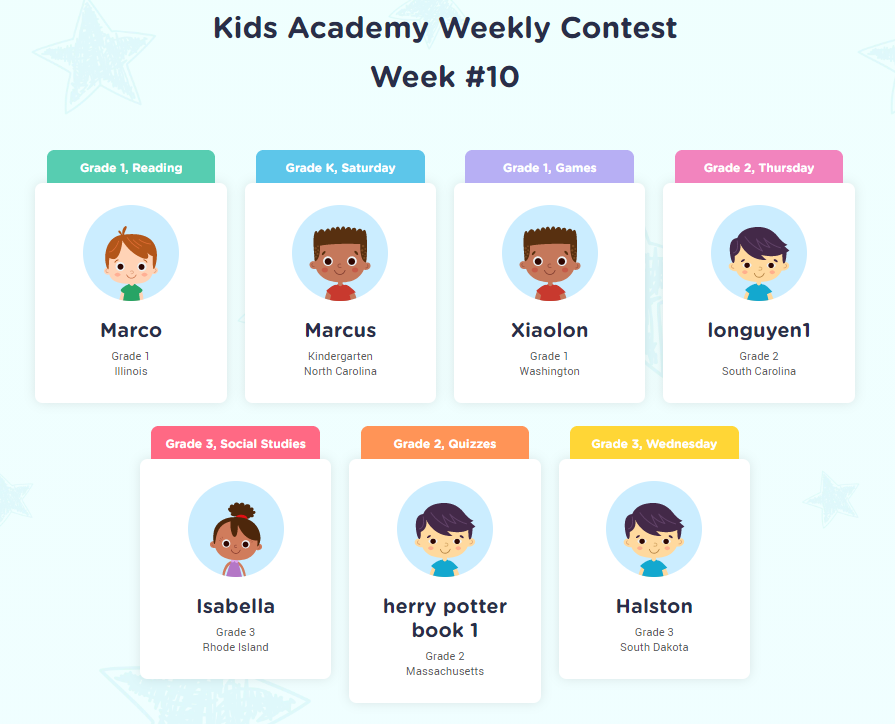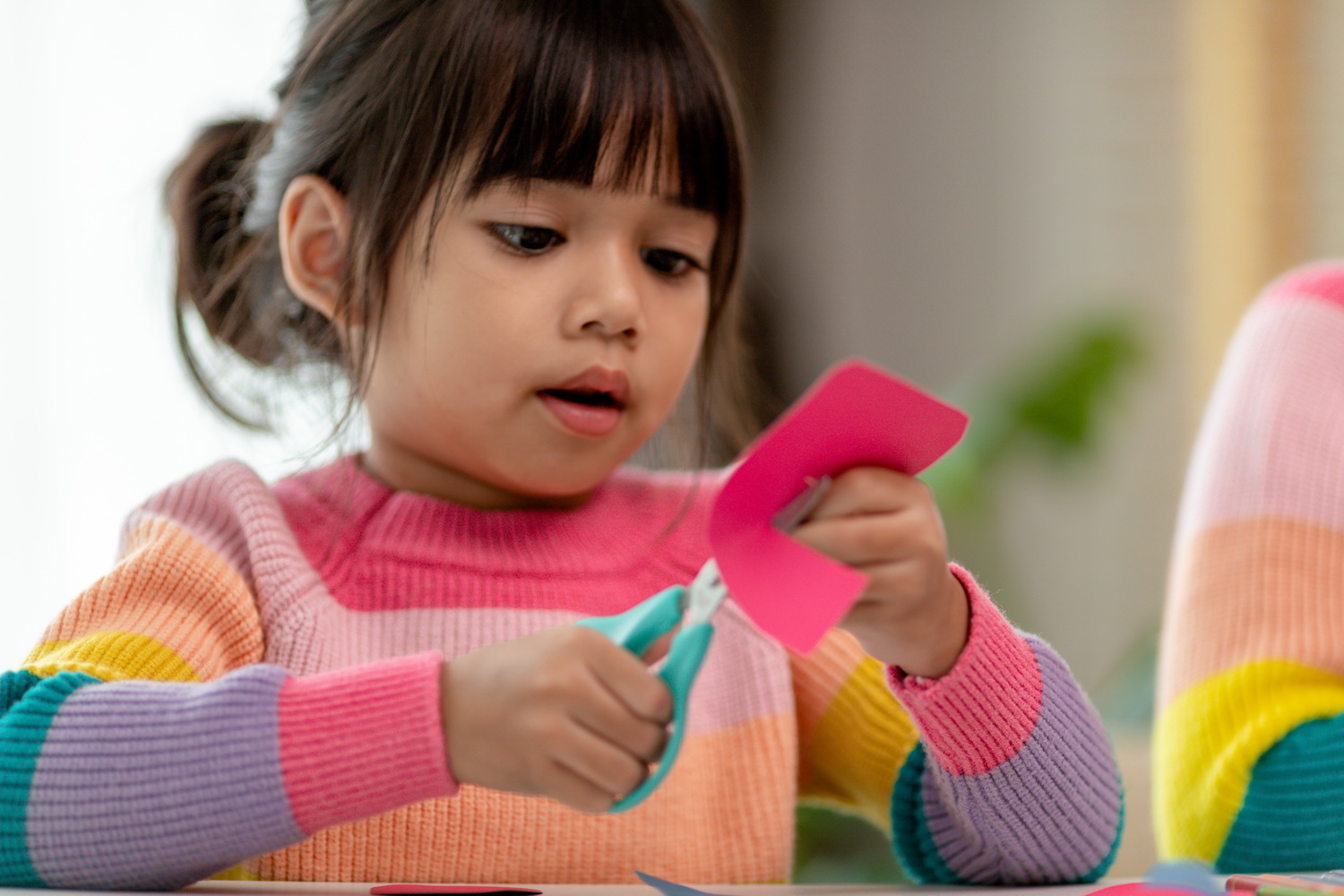Geometry worksheets activities for Ages 5-9
7 filtered results
-
From - To
Explore our engaging geometry worksheets designed for children ages 5 to 9! These activities introduce foundational concepts such as shapes, measurements, and spatial understanding in a fun and interactive way. Our worksheets encourage critical thinking and creativity as kids identify patterns, solve problems, and draw geometric shapes. Each activity is crafted to reinforce essential skills while making learning enjoyable. Perfect for classroom use or homeschooling, these resources support educators and parents in nurturing young learners' mathematical abilities. Visit our page now to access a variety of printable worksheets that will inspire a love for geometry and enhance your child's understanding!
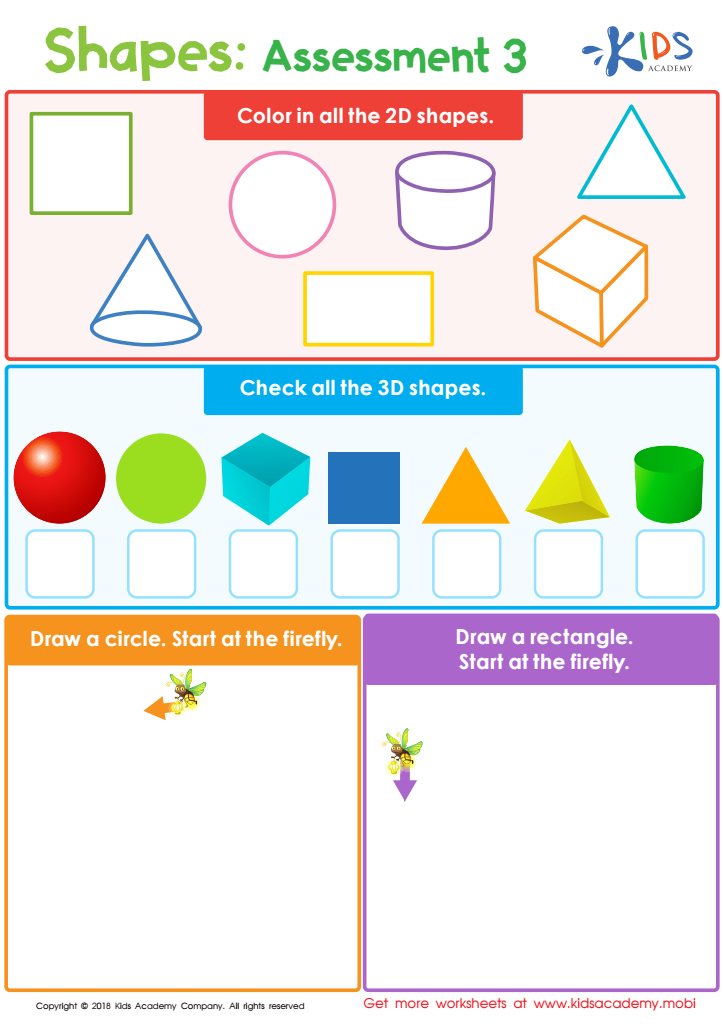

Shapes: Assessment 3 Worksheet
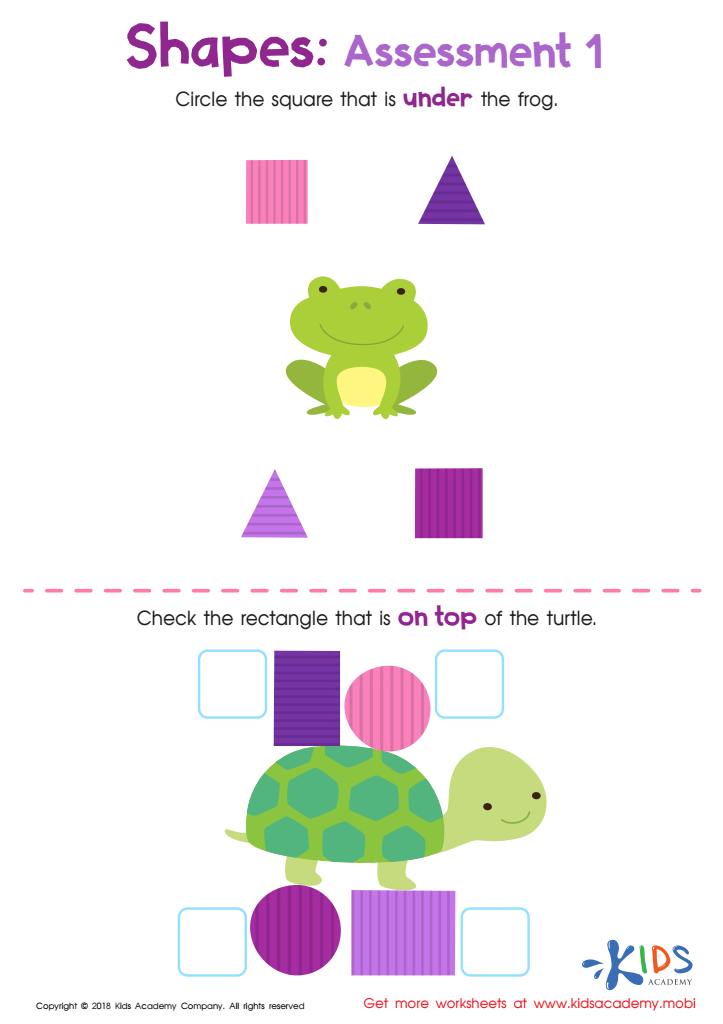

Geometry – Assessment 1 Worksheet
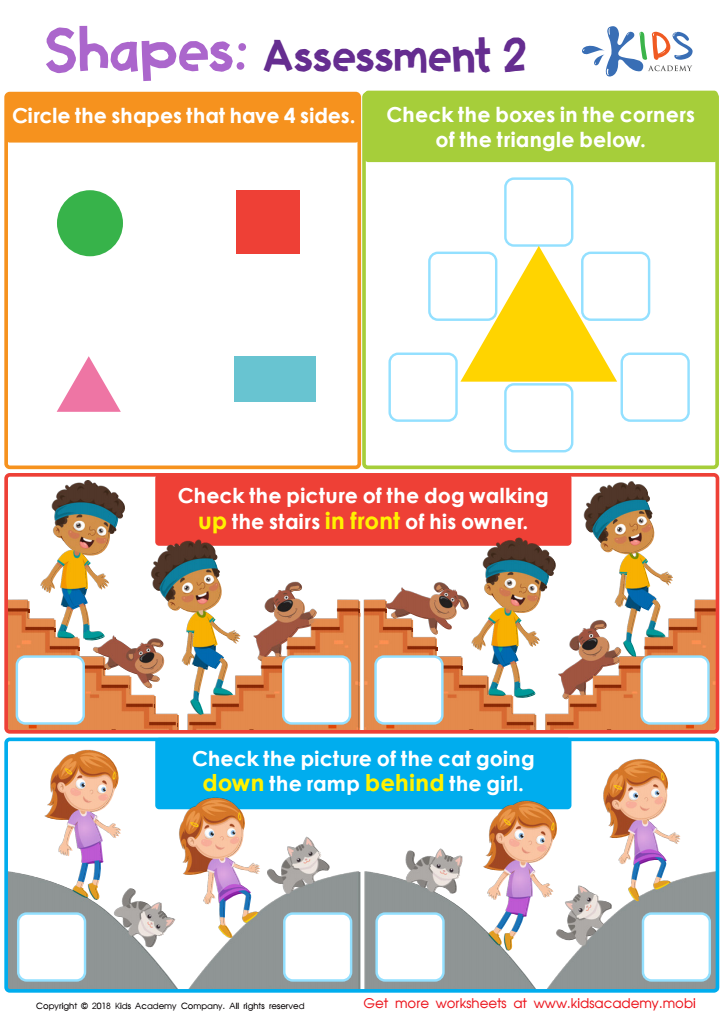

Shapes: Assessment 2 Worksheet
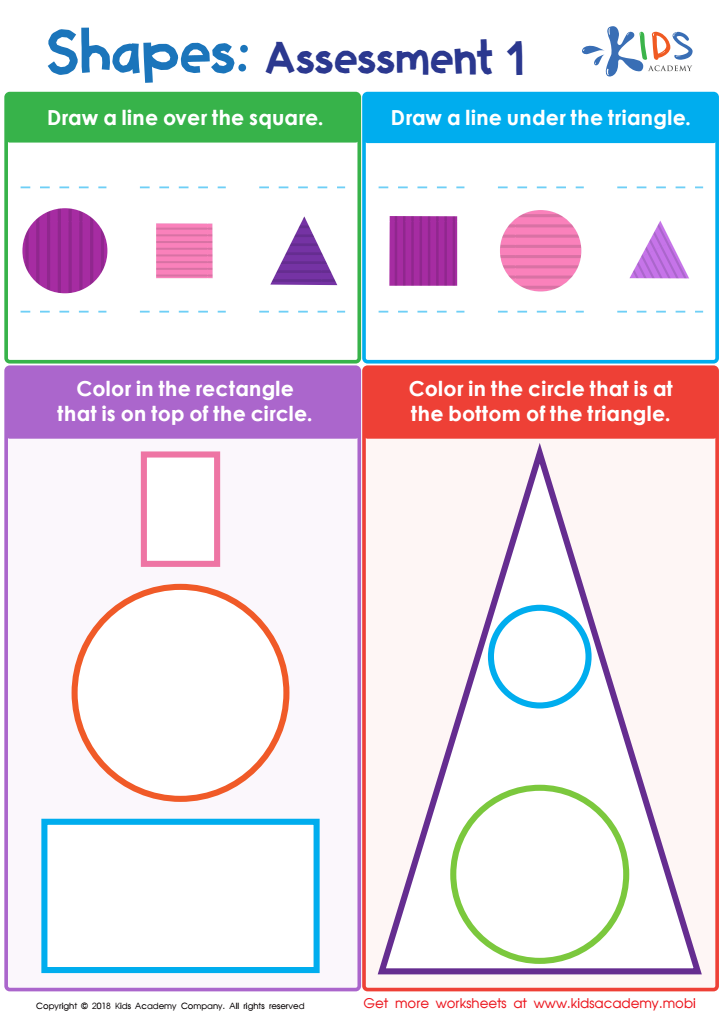

Shapes: Assessment 1 Worksheet
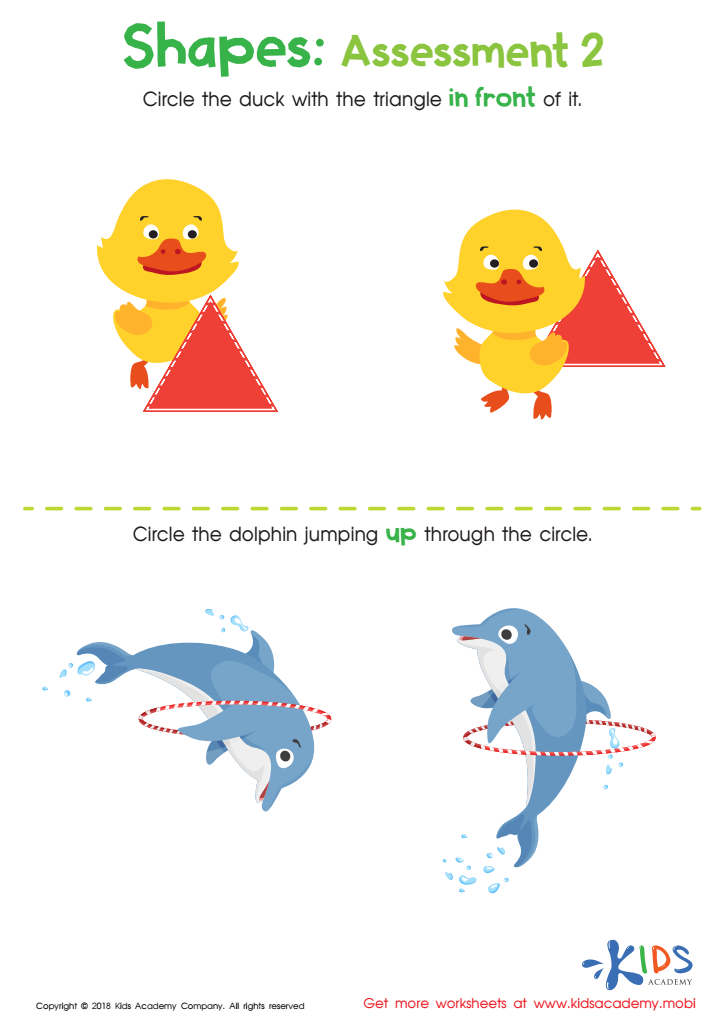

Geometry – Assessment 2 Worksheet
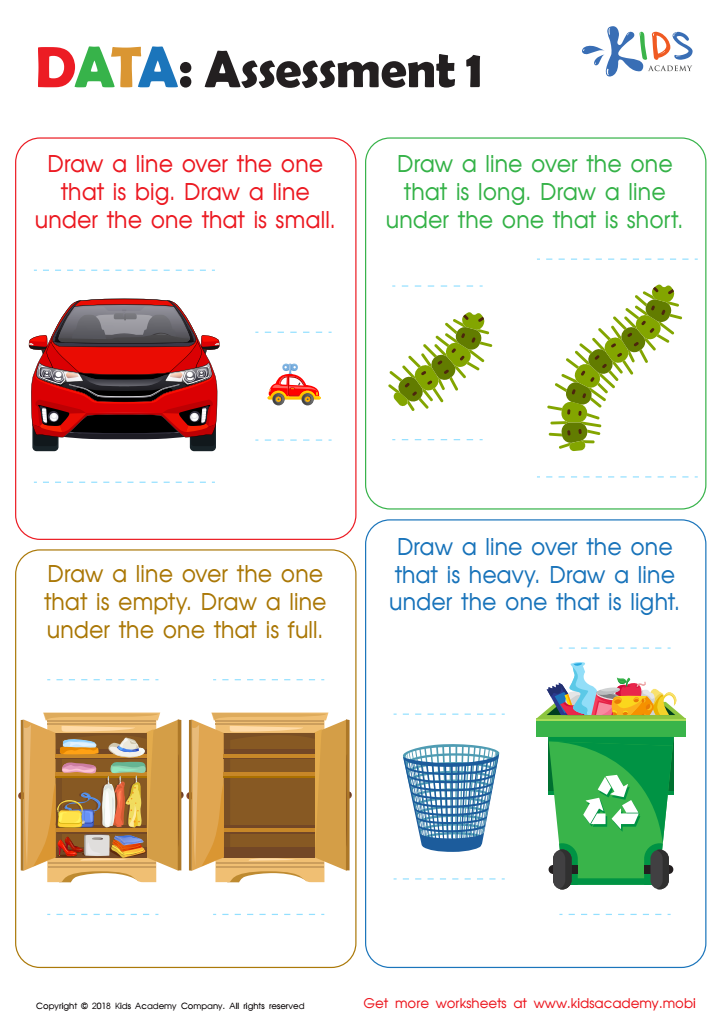

Data: Assessment 1 Worksheet
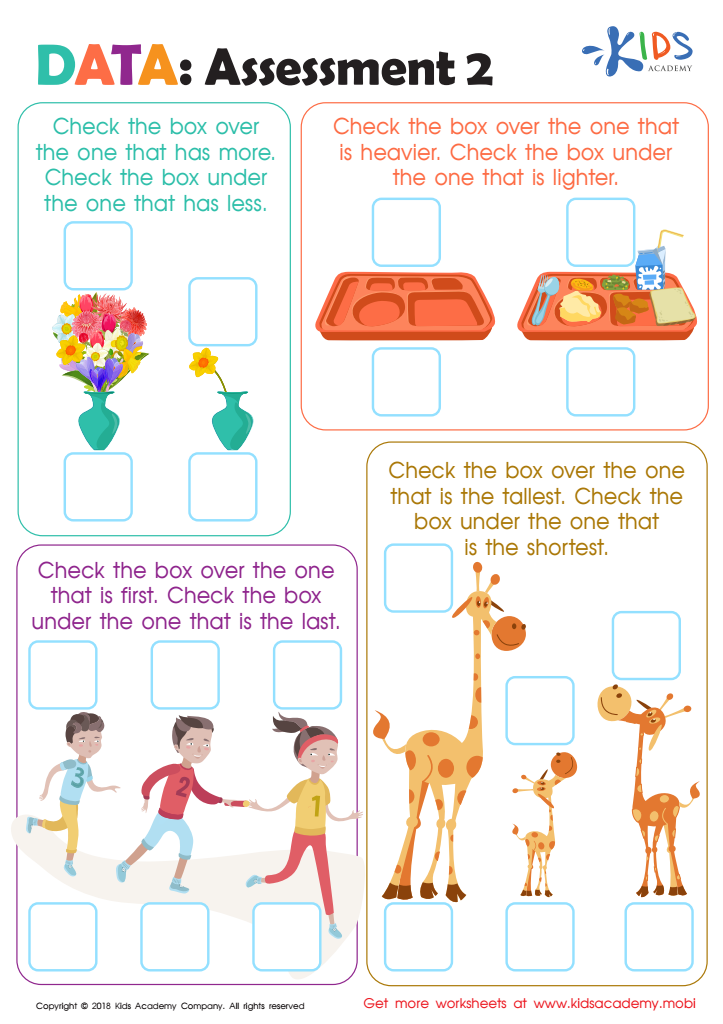

Data: Assessment 2 Worksheet
Geometry activities for children aged 5 to 9 are crucial for several reasons. First, they foster spatial reasoning skills, which are essential for understanding shapes, sizes, and their relationships, forming the foundation for more complex mathematics in later years. Engaging in geometric activities enhances visual literacy, empowering children to interpret and navigate the world around them.
Moreover, geometry is not merely about shapes; it integrates critical thinking and problem-solving skills. Through hands-on activities like building structures with blocks or creating patterns, children learn to hypothesize, test, and refine their ideas, laying the groundwork for scientific inquiry and innovation.
Additionally, geometry encourages creativity. Children express their artistic side through shape-based crafts, combining math with the arts, which stimulates their imagination and demonstrates real-world applications.
Parental and teacher support in these activities nurtures a positive attitude toward math, reducing anxiety and fostering confidence. As children experience success in geometric concepts, they develop resilience and persistence crucial for later academic challenges.
Ultimately, encouraging geometry activities helps build a balanced skill set, prepares children for more advanced mathematical concepts, and equips them with everyday skills like budgeting, architecture, and even cooking, which rely on geometric understanding.
 Assign to My Students
Assign to My Students





